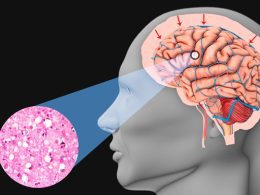Title: The Science behind Non-Laxative Remedies for Constipation Relief
Introduction: Constipation, a common gastrointestinal problem affecting millions of people worldwide, can be both uncomfortable and disruptive to daily life. While laxatives have traditionally been relied upon for relief, an increasing number of individuals are seeking non-laxative remedies. In this article, we delve into the scientific foundations behind non-laxative approaches for constipation relief, shedding light on effective alternatives backed by research.
- Understanding the Digestive Process: To comprehend the science behind non-laxative remedies, it is crucial to understand the intricate workings of the digestive system. The process begins with the ingestion of food, followed by its breakdown and absorption in the intestines. Constipation occurs when there is a disruption in the regular bowel movements or when stool becomes difficult to pass through the colon.
- Fiber: The Digestive Hero: Dietary fiber plays a crucial role in maintaining regular bowel movements. Soluble fiber absorbs water, forming a gel-like substance that softens the stool and increases its bulk. Insoluble fiber adds bulk to the stool, aiding its movement through the digestive tract. Both types of fiber work synergistically to promote healthy digestion and alleviate constipation. Scientific studies consistently demonstrate that a high-fiber diet can improve bowel regularity and relieve constipation.
- Hydration for Smooth Passage: Water intake is a fundamental aspect of maintaining digestive health. Adequate hydration helps soften the stool, making it easier to pass through the colon. Research suggests that increasing fluid intake can significantly alleviate constipation and improve overall bowel function. Encouraging individuals to consume an appropriate amount of water daily can be an effective non-laxative strategy for combating constipation.
- Probiotics and Gut Health: The gut microbiome, the complex ecosystem of microorganisms residing in our digestive system, plays a vital role in maintaining overall health, including bowel regularity. Probiotics, beneficial bacteria found in certain foods or supplements, have gained attention for their potential to alleviate constipation. Scientific evidence suggests that specific strains of probiotics can enhance stool consistency, transit time, and promote bowel regularity. Although more research is needed, incorporating probiotic-rich foods or supplements may offer non-laxative relief for constipation.
- Physical Activity and Bowel Motility: Regular exercise not only benefits overall health but also influences gastrointestinal function. Physical activity stimulates the muscles in the intestines, promoting bowel motility and facilitating the passage of stool. Multiple studies have shown that increased physical activity and exercise can improve bowel habits and relieve constipation. Encouraging individuals to engage in regular exercise routines can serve as an effective non-laxative remedy for constipation.
- Stress Reduction and the Gut-Brain Connection: The gut-brain connection is a bidirectional communication network between the brain and the digestive system. Stress and anxiety can disrupt the normal functioning of the gastrointestinal tract, leading to constipation. Techniques such as relaxation exercises, meditation, and mindfulness have been shown to reduce stress levels and improve gut motility. By managing stress, individuals can support healthy bowel function and alleviate constipation naturally.
- Individualized Approach: It’s important to note that constipation can have various underlying causes, and what works for one person may not be as effective for another. Each individual’s body and digestive system are unique. Encourage readers to consult with healthcare professionals for personalized advice and to determine the most suitable non-laxative remedies based on their specific needs and medical history.
Conclusion: The science behind non-laxative remedies for constipation relief highlights the effectiveness of dietary fiber, hydration, probiotics, exercise, and stress reduction techniques. By understanding the intricate mechanisms of the digestive system, individuals can make informed choices to alleviate constipation naturally and promote long-term digestive health. However, it is essential to consider individual differences and seek professional guidance for personalized advice and comprehensive care.












